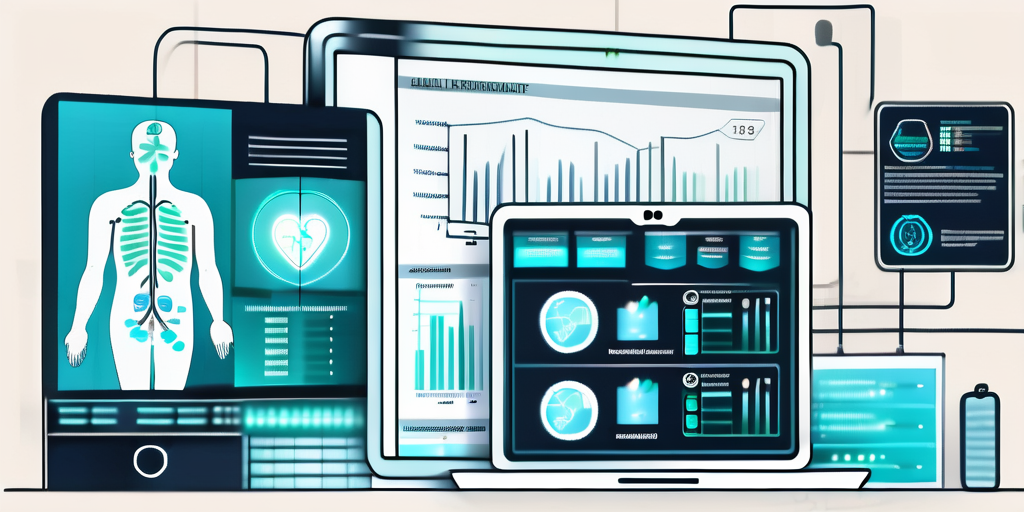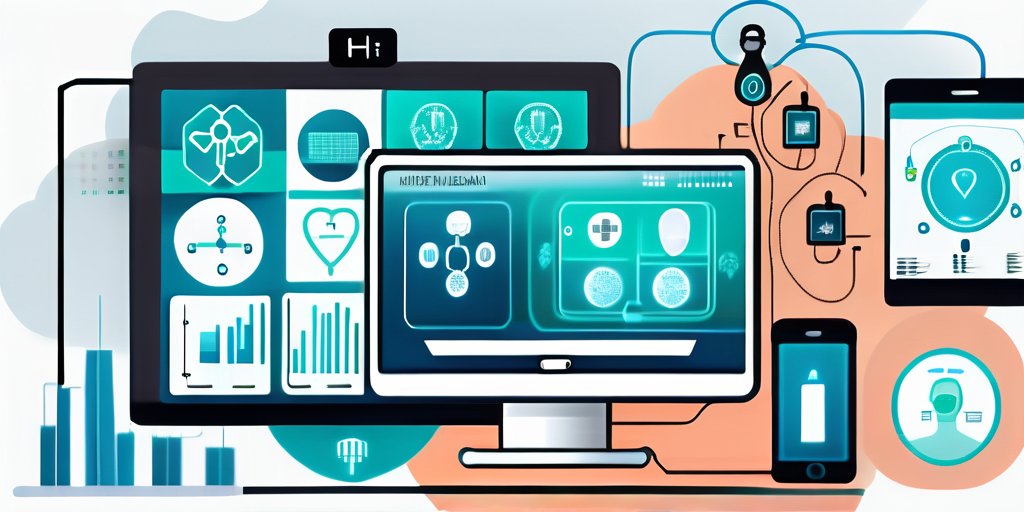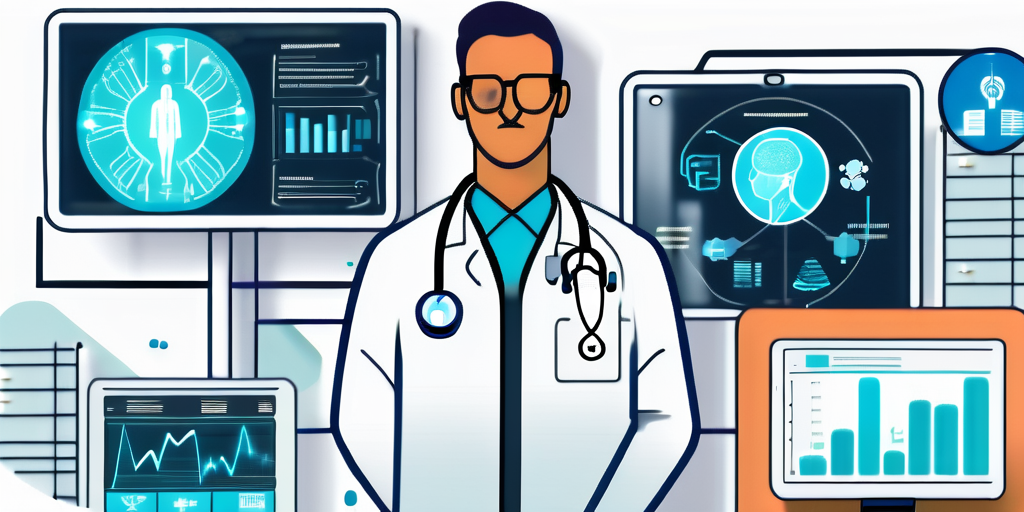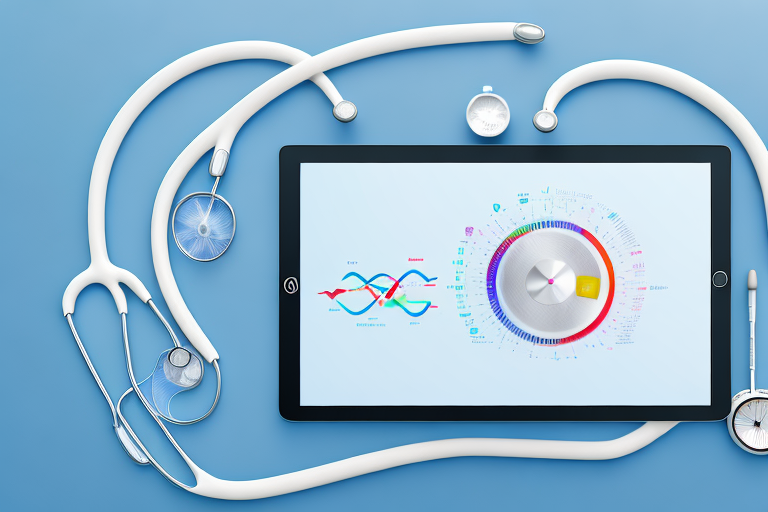Electronic Health Record (EHR) Modernization is revolutionizing the healthcare industry, paving the way for improved patient care, streamlined operations, and enhanced decision-making capabilities. Understanding the evolution and key features of EHRs is crucial in grasping their importance in modern healthcare. At the same time, it is essential to acknowledge the challenges that come with EHR modernization while exploring the technological innovations driving this transformation. Finally, we must consider the impact of these advancements on healthcare professionals and how they can adapt to this changing landscape.
Understanding Electronic Health Records (EHRs)
Electronic Health Records (EHRs) have come a long way since their inception. Originally introduced as a digitized version of paper records, EHRs have evolved into comprehensive systems that encompass an individual’s complete medical history. These digital records include information such as demographics, diagnoses, medications, allergies, lab results, and more. By centralizing this data and making it accessible to authorized healthcare providers, EHRs improve patient care, enhance communication, and enable efficient coordination among various medical professionals involved in a patient’s treatment journey.

The Evolution of EHRs
The journey of EHRs began with basic electronic medical records systems, which digitized patient information for storage and retrieval. However, modern EHRs have advanced functionalities, including clinical decision support systems, e-prescribing capabilities, and interoperability features. These improvements have been fueled by technological advancements and the recognition of EHRs’ potential in transforming healthcare delivery.
With the advent of clinical decision support systems, EHRs have become powerful tools that assist healthcare providers in making informed decisions. These systems analyze patient data, such as lab results and medical history, and provide evidence-based recommendations for diagnosis and treatment. By leveraging artificial intelligence and machine learning algorithms, EHRs can identify patterns and trends in large datasets, helping healthcare professionals identify potential risks and tailor treatment plans accordingly.
E-prescribing capabilities have also revolutionized medication management. With EHRs, healthcare providers can electronically send prescriptions to pharmacies, eliminating the need for handwritten prescriptions that can be prone to errors. This streamlines the medication ordering process, reduces medication errors, and improves patient safety. Additionally, EHRs can alert healthcare providers about potential drug interactions or allergies, ensuring that patients receive the most appropriate and safe medications.
Interoperability is another crucial feature of modern EHRs. It allows different healthcare organizations and systems to securely exchange patient information, facilitating seamless care transitions and continuity of care. For example, if a patient is referred to a specialist, their EHR can be easily accessed by the specialist, enabling them to have a comprehensive understanding of the patient’s medical history and providing more effective and coordinated care. Interoperability also plays a vital role in public health initiatives, as it enables the sharing of data for disease surveillance, research, and population health management.
Key Features of Modern EHRs
Modern EHRs offer several key features that distinguish them from traditional paper records or earlier electronic systems. These features include real-time access to patient information, integration with clinical workflows, automated reminders and alerts, customizable templates for documenting patient encounters, and secure data exchange among healthcare organizations. Such essential aspects allow healthcare providers to deliver timely, accurate, and personalized care, leading to improved patient outcomes.
Real-time access to patient information is a game-changer in healthcare. With EHRs, healthcare providers can instantly retrieve up-to-date patient data, including test results, medication history, and previous diagnoses. This eliminates the need for manual searching through paper records or waiting for faxed information, enabling faster decision-making and more efficient care delivery.
Integration with clinical workflows is another significant advantage of modern EHRs. These systems can be seamlessly integrated into healthcare providers’ existing processes, ensuring a smooth transition from paper-based or legacy electronic systems. By eliminating redundant data entry and automating tasks, EHRs save time and reduce administrative burden, allowing healthcare professionals to focus more on patient care.
Automated reminders and alerts are valuable features that help healthcare providers stay on top of patient care. EHRs can generate reminders for preventive screenings, follow-up appointments, or medication refills, ensuring that patients receive timely interventions and preventive measures. Alerts can also notify healthcare providers about critical lab results or potential adverse drug reactions, enabling them to take immediate action and prevent complications.
Customizable templates for documenting patient encounters streamline the documentation process. EHRs offer pre-built templates that can be tailored to specific specialties or individual preferences. This allows healthcare providers to document patient encounters efficiently and consistently, ensuring that all relevant information is captured accurately. Customizable templates also facilitate data analysis and reporting, supporting quality improvement initiatives and research studies.
Secure data exchange among healthcare organizations is vital for collaborative care and care coordination. EHRs employ robust security measures, such as encryption and user authentication, to protect patient information during transmission. This enables healthcare providers from different organizations to securely share patient data, enhancing communication and enabling comprehensive and coordinated care across different healthcare settings.
The Role of EHRs in Modern Healthcare
EHRs play a pivotal role in revolutionizing modern healthcare by addressing critical challenges and enabling transformative outcomes. The implementation of EHRs has proven instrumental in enhancing patient care and streamlining healthcare operations.

Improving Patient Care
EHRs empower healthcare providers with instant access to comprehensive patient information, facilitating better clinical decision-making. With EHRs, healthcare professionals can quickly retrieve medical histories, lab results, and medication lists, allowing them to make more informed decisions about patient care. This accessibility to patient data also improves care coordination among different healthcare providers, ensuring that everyone involved in a patient’s treatment has access to the same up-to-date information.
One of the significant benefits of EHR adoption is the reduction in medical errors. With EHRs, healthcare providers can easily identify potential drug interactions, allergies, or contraindications, preventing medication errors that could have serious consequences for patients. Additionally, EHRs support medication management by providing automated reminders for prescription refills and dosage adjustments, ensuring that patients adhere to their treatment plans.
Furthermore, EHRs support population health management initiatives by providing data-driven insights. By analyzing aggregated patient data, healthcare organizations can identify at-risk populations and monitor health trends on a larger scale. This information allows for the development of targeted interventions and preventive measures to improve overall population health.
Streamlining Healthcare Operations
By digitizing and centralizing patient records, EHRs eliminate the need for physical storage and manual record retrieval. This streamlines administrative processes, reduces paperwork, and minimizes the occurrence of misplaced or lost records. Healthcare providers no longer need to spend valuable time searching for patient files, as all the information is readily available at their fingertips.
Moreover, EHRs automate several routine tasks, such as appointment scheduling, billing, and insurance claims processing. This automation not only saves time but also reduces the likelihood of errors that can occur with manual data entry. With EHRs, healthcare providers can generate accurate and timely bills, submit insurance claims electronically, and track the status of payments more efficiently. This improved administrative efficiency allows healthcare organizations to allocate resources more effectively and focus on delivering quality patient care.
In conclusion, EHRs have revolutionized modern healthcare by improving patient care and streamlining healthcare operations. With instant access to comprehensive patient information, healthcare providers can make more informed decisions and enhance care coordination. Additionally, the digitization of patient records and automation of routine tasks have led to increased administrative efficiency and reduced errors. As technology continues to advance, EHRs will play an even more significant role in shaping the future of healthcare.
Challenges in EHR Modernization
Despite their numerous benefits, EHR modernization does come with its fair share of challenges. Addressing these hurdles is crucial to ensure the successful implementation and utilization of EHR systems.

Data Security and Privacy Concerns
As healthcare systems transition to digital platforms, ensuring the security and privacy of patient data becomes paramount. With the increasing occurrences of cyberattacks and data breaches, healthcare organizations must invest in robust security measures, encryption protocols, and employee training to safeguard confidential patient information.
Interoperability Issues
Interoperability, or the ability of different EHR systems to exchange and interpret information seamlessly, remains a challenge. In a fragmented healthcare landscape, where multiple EHR platforms coexist, ensuring data compatibility and interoperability between systems is crucial for delivering holistic patient care. Standardization and collaborative efforts are necessary to overcome this obstacle and enhance data exchange between healthcare organizations.
Technological Innovations Driving EHR Modernization
Technological advancements continue to fuel the momentum behind EHR modernization. Innovations such as Artificial Intelligence (AI) and Machine Learning, along with blockchain technology, have the potential to revolutionize EHR systems and propel them into the future.
Artificial Intelligence and Machine Learning
The integration of AI and Machine Learning algorithms in EHRs opens up new avenues for predictive analytics, early disease detection, and personalized treatment plans. By analyzing large volumes of patient data, these technologies can identify patterns, identify high-risk cases, and suggest tailored healthcare interventions. This data-driven approach not only improves patient outcomes but also optimizes resource allocation for healthcare providers.
Blockchain Technology in EHRs
Blockchain technology offers a secure and decentralized method for storing, managing, and sharing electronic health records. By eliminating the need for intermediaries and ensuring data integrity, blockchain enhances transparency, security, and data access control. Additionally, blockchain-based EHRs enable patients to have greater control and ownership over their health data, empowering them to share information securely with healthcare providers of their choice.
The Impact of EHR Modernization on Healthcare Professionals
EHR modernization not only transforms healthcare as a whole but also affects healthcare professionals, requiring them to adapt to new technologies and workflows.
Training and Adaptation
Healthcare professionals need adequate training and support to effectively use EHR systems and leverage their full potential. Continuous education programs, adequate resources, and user-friendly interfaces are essential to facilitate seamless adoption and integration of EHRs into the existing healthcare workflows.
Enhancing Decision-Making Capabilities
As EHR systems generate vast amounts of patient data, healthcare professionals can harness this information to make evidence-based decisions. By leveraging analytics tools embedded in EHRs, healthcare providers can access valuable insights and trends, enabling them to deliver personalized care and improve patient outcomes.
In conclusion, the future of healthcare lies in the modernization of Electronic Health Records (EHRs). With their ability to improve patient care, streamline operations, and empower healthcare professionals, EHRs have the potential to transform the healthcare industry. However, this transformation comes with its own set of challenges, including data security concerns and interoperability issues. Nevertheless, technological innovations, such as AI, Machine Learning, and blockchain, continue to drive the advancement of EHR systems, ensuring a future characterized by enhanced patient care, efficiency, and data-driven decision-making. Healthcare professionals must embrace EHR modernization, adapting their skills and workflows to fully realize the benefits these systems offer in the pursuit of delivering high-quality, patient-centered care.

